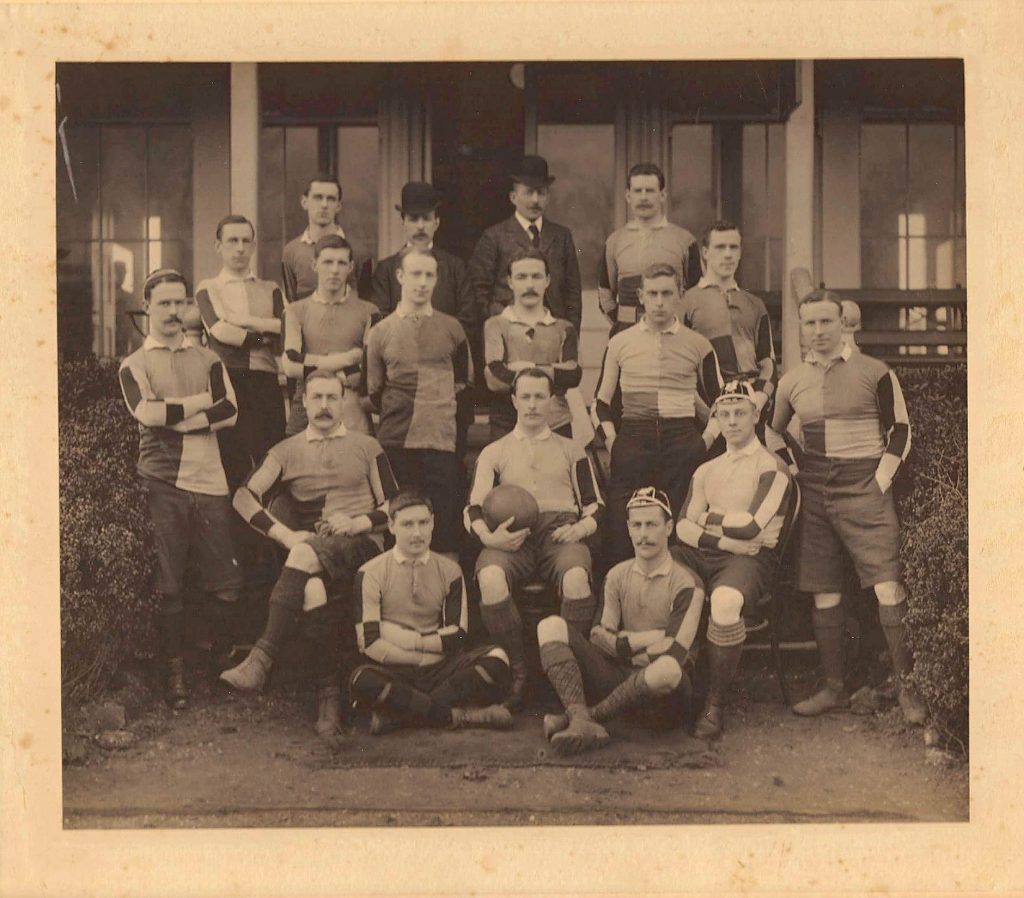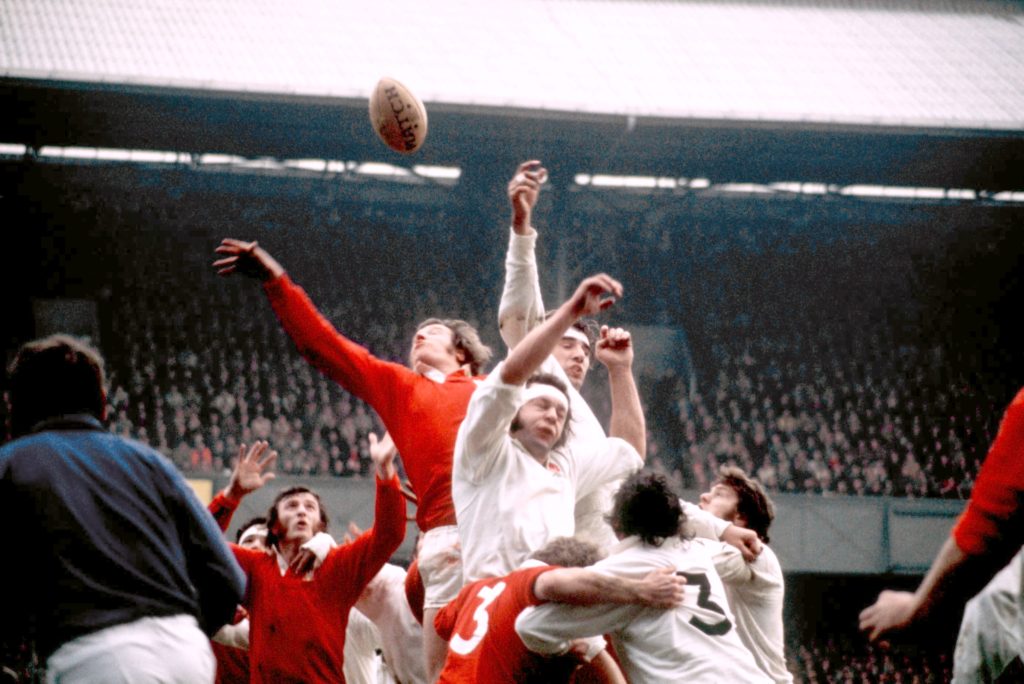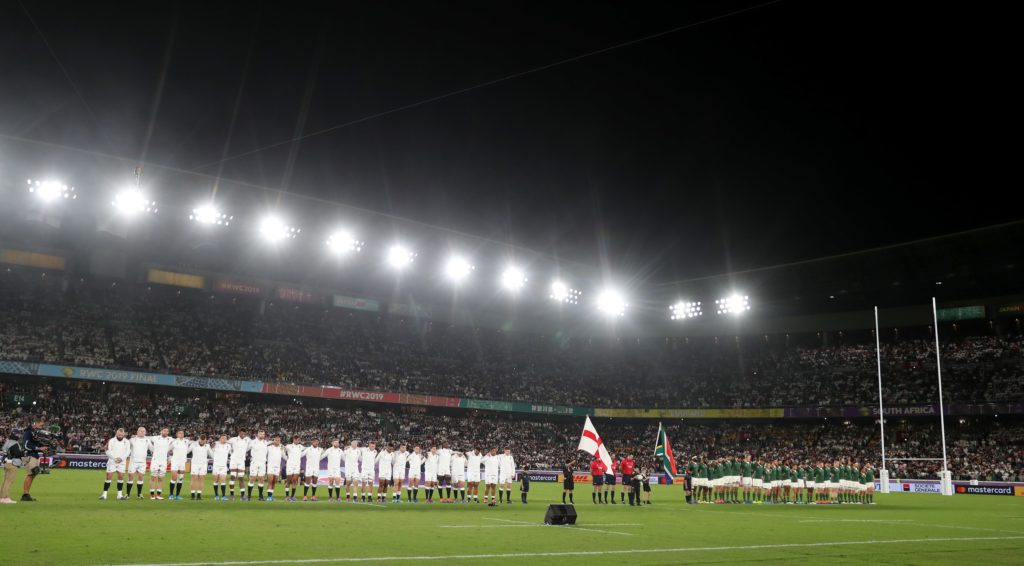Head west on Pall Mall from Trafalgar Square, and there, just behind the Canadian Embassy, is where it all began. One-hundred-and-fifty years ago on a nondescript Thursday in January, very much not a dry one for those gentlemen present, nor locked down, the Rugby Football Union was born in the Pall Mall Restaurant.
There’s a plaque to commemorate the event. Not quite as famous, maybe, as that other plaque that claims so contentiously – and to anyone who cares to investigate, so spuriously – to mark the occasion the sport was ‘created’ in 1823 by some boy or other no-one had heard of in 1871, but it’s a plaque just off one of the most famous locales in all of the known world, so it must count for something.
The Pall Mall Restaurant lasted, alas, about as long afterwards as a committeeman’s hangover and was replaced by the impressive edifice whose Trafalgar Square-facing section houses Canada’s foothold in the old country. Nowadays, the back end of Canada House, where the Pall Mall Restaurant once stood, is known as Oceanic House, on account of the fact the first tenants of the new building, in 1907, were the White Star Line – yes, the very company who sold tickets for a berth on the Titanic.
A cynic might well wonder if that little corner of London is cursed, host as it was to the origin of an enterprise whose band played stubbornly on even as the waters rose higher. And where they also sold tickets to the Titanic.
Legend has it that the Wasps guy went to the wrong hostelry and drank himself into a stupor. Thus Wasps forfeited their right to be a founding club.
Michael Aylwin
The theme of enterprises doomed goes on. Today, Oceanic House’s ground floor is a retail space that has stood empty for years. Meanwhile, the four-bedroom penthouse apartment on the top two floors has proved hard to shift but remains available with Strutt and Parker for a shade over £16m. For all rugby’s subsequent efforts, not without success, to peddle its wares across the world, it seems the significance of the sport’s birthplace is yet to register with your average Russian oligarch.
But this was where rugby was formed. There are some ‘rugby’ clubs who are even older than the sport itself, but before the RFU they were known simply as football clubs, albeit ones who favoured the rules as espoused by Rugby School. Representatives of 21 of these clubs met that day, January the 26th 1871, to form the RFU and so dissociate themselves from association football. It was the first of a few seismic splits to traumatise the various codes of football in the 19th century.
Most of the clubs who formed the RFU no longer exist, but among those that do, necessarily in and around London, are Blackheath, Harlequins and Richmond. Legend has it that the Wasps guy went to the wrong hostelry in London and drank himself into a stupor waiting for the others to arrive. Thus Wasps forfeited their right to be a founding club. Which, in light of what was to unfold over the subsequent 150 years, feels quite appropriate – colourful but a bit crap, defined by alcohol and decidedly amateur.
 Harlequins pose for a team photograph” class=”wp-image-8171″ />
Harlequins pose for a team photograph” class=”wp-image-8171″ />From the off, that amateur ethos was not only embraced but clung to stubbornly, almost insanely, for the next century-and-a-quarter. Within 25 years rugby’s intransigence on the matter begot the most traumatic split of all, that between union and league, amateur and professional.
Union held out and held out, of course, for another 100 years, until five before the end of the next century, when it finally gave in to the realities of the modern world. But it did not comfortably shake off the amateur ways.
This is where we edge to the heart of so many of its current problems – and even to the virtues of the amateur ideal. Because there is a fundamental tension across all of society, but particularly rugby, between the earthy, soulful past and the shiny future, which can quite easily be related to the tension between the amateur and the professional. One-hundred-and-fifty years on, rugby still does not know which it wants to be.
However ugly the posturing of entitled buffoons who didn’t understand not everyone could play for pure recreation, there is much to be said for amateurism
Michael Aylwin
There is much to be said for amateurism. However ugly the posturing of entitled buffoons who didn’t understand not everyone could play for pure recreation, there was much charm in the weird idiosyncrasies that developed: the bewildering rituals on the field of set piece and anarchy; the accent on a sporadic international game; the luxurious long Lions tours; the rounds of friendly fixtures between ancient clubs; the mixing of classes, standards and body types; the drinking of beer, not protein shake. The insulation against lucre.
All of it was quite lovely. All of it was in the balance when rugby decided which way it wanted to go in 1995. The time to defend all these notions was then.
Could rugby have remained amateur? Realistically, no. And even if it had, such is the culture of the 21st century, most of the subsequent developments were on their way anyway. Take a look at the community game now. Take a look at school rugby. Not a penny in sight (well, not many anyway), but brutal and decidedly serious the lot of it, all driven by the 21st century lust to be the best that we can be.
Nevertheless, there was a choice in 1995 – and most people couldn’t wait to embrace the new dynamic. But it was obvious to those who were less sure that the price of professionalism would be the loss of the game’s ancient soul, the erosion of its quirks and characters.
The thing is, you either do professionalism properly – and it is about so much more than paying the players a fair wage – or you don’t do it at all. Because the irresolution of a sport caught between the two is potentially ruinous.
 England against Wales” class=”wp-image-8168″ />
England against Wales” class=”wp-image-8168″ />We’re in the middle of just one example here in England at the moment. The furore goes on about whether to seal off the Premiership. The cry goes up again and again that to do so would be an affront to the very essence of sport, which is, we are told, about romance, charm and a renouncement of the commercial.
Well, no, that is not so much the essence of sport as the essence of amateurism. There is only one major team sport in the world that allows its professional game to exist in the same messy pyramid as its amateur, and that is football. Then there’s rugby in England and France. Everywhere else in the sporting universe the amateur and professional games are sealed off from each other: in all the big American sports; all the Australian; rugby league; union in all the other countries; cricket and so on.
The model is quite consistent, too. The international dimension in all sports – and this time we can include even football – is at best an occasional distraction from the dominant form, which is a regular diet, from week to week, of locally supported domestic action. The tension in rugby between the international and domestic games is still intriguingly poised, such is the heft of the old amateur culture the modern game has inherited, but if the professional way is to be given full expression – and one has to think the cat is out of the bag on that front – the domestic game in its biggest markets (which in rugby means France, England and increasingly Japan) will prevail in the end.
This is not a fate to celebrate or decry. It just is the way professional sport works. Unless the international game were to become a weekly affair throughout a given season, it cannot compete in the long run with a rival that supplies its constituencies with a regular diet of action. In time, resources will gravitate towards the latter.
Players used to train by tackling sheep on the farm or lugging hods this way and that. They had diverse day jobs and opinions to match.
Michael Aylwin
Rugby is interesting because, unlike pretty much all other team sports, it has established international competitions that are contested annually, which means this tension is unlikely ever to be resolved completely, but these are necessarily staged over a handful of weekends a year. Meanwhile, the domestic competitions will continue to grow in power, driven by that weekly energy, and the players will be pulled hither and thither.
The state of the game those players play is constantly being argued over too, and that is yet another legacy of the amateur era and a hankering, sub-conscious or not, to return to it. How often do we hear complaints about the power of the players, about the loss of the personalities, the primacy of statistics and computers, the battery of specialist coaches, and so on. Again, these trends were inevitable the moment rugby chose to abandon the amateur way.
It is not all bad. For a start, there’s the magnificence of the spectacle on the field, which, for all the carping, continues to produce quality and drama far beyond the ken of the amateur game. We at TheXV have already argued forcibly that modern rugby, as a spectacle, has been transformed for the better – and we await any coherent argument to the contrary. But that is not to say the culture of the modern game is preferable.
 South Africa line up ahead of the 2019 Rugby World Cup final” class=”wp-image-8172″ />
South Africa line up ahead of the 2019 Rugby World Cup final” class=”wp-image-8172″ />Players used to train by tackling sheep on the farm or lugging hods this way and that. They had diverse day jobs and opinions to match. They could play international rugby while turning out for a club no-one had heard of in some obscure corner of the country. They drank beer, not protein shake. All of it colourful and fabulous. All of it amateur.
When those committeemen gathered 150 years ago to plot a future for their rebel sport, they got drunk in a smoky hostelry that has since been replaced by multimillion-dollar apartments of unrecognisable luxury and splendour. Anyone with a soul might long for a return to the former, even if it was self-evidently humbler and of poorer quality. And the more nostalgic they are, the more urgent that longing.
That is to be respected. Realistically, though, such a return is impossible, even if there were a critical mass of folk who wanted it, which there isn’t. Rugby’s problems now are of a different order. Like the Titanic, launched with such splendour, professional rugby now finds itself amid a sea of icebergs, any one of which might bring it down. These are very real and treacherous hazards to negotiate. But the cries to turn back have come too late.



Comments
Join free and tell us what you really think!
Sign up for free